For this project I purchased an Arduino Feather Huzzah
Adafruit 2821 Feather HUZZAH with ESP8266 Wi-Fihttps://www.adafruit.com/product/2821
Mac installation:
Following the instructions on the Feather Huzzah page, I downloaded the latest Arduino IDE:Arduino IDE.Next, I downloaded and installed the Legacy CP2104 USB driver for my Mac from here.
Windows installation:
I downloaded the Windows installer (.exe) file from here. Be sure to download the installer version, not from an app store. The appropriate drivers are bundled with the installer version.
Using a micro-USB to regular USB cable I connected the Feather to my Mac. On connection, the on-board LEDs blinked indicating connection and power.
After the Arduino IDE loads, I added the ESP8266 board manager by navigating to Arduino –> Preferences and adding http://arduino.esp8266.com/stable/package_esp8266com_index.json in the “Additional Boards Manager URLs” field and click “OK“.
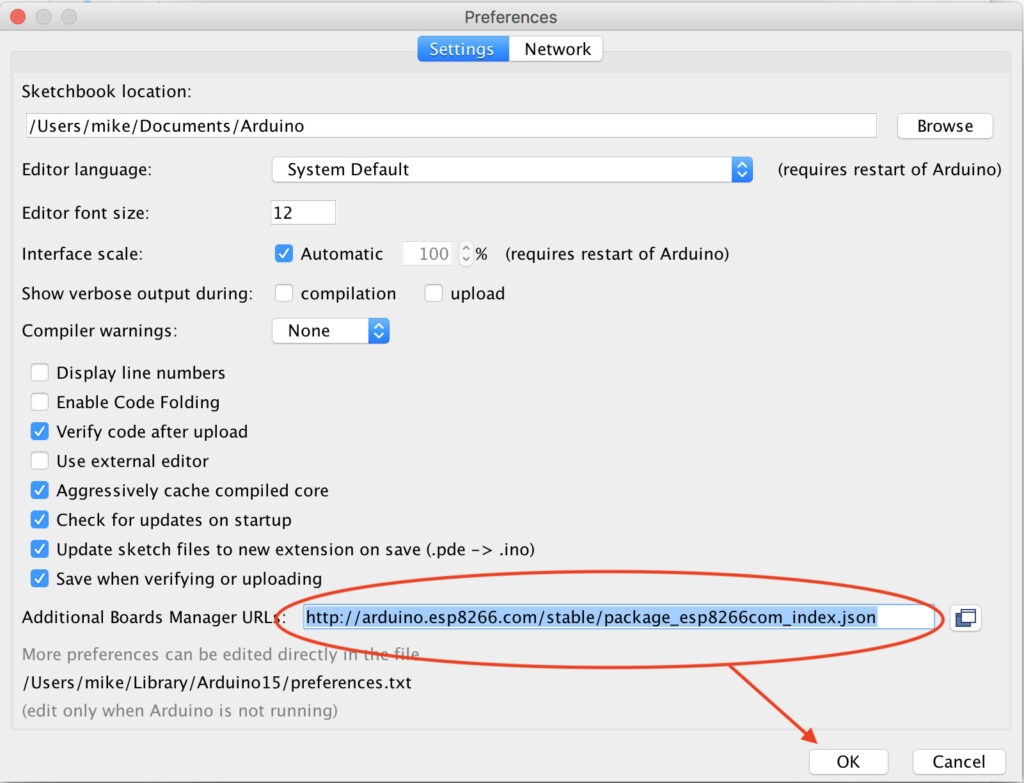
Tools –> Board –> Board Manager and search for “esp8266”
Select “esp8266 by ESP8266 Community” and click “Install” –> “OK”
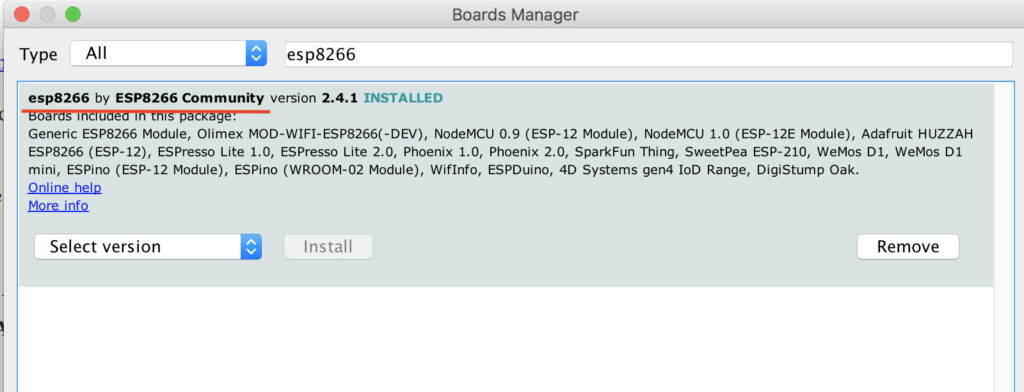
Tools –> Board –> select “Adafruit Feather HUZZAH ESP8266“. If you need additional settings, refer to these instructions
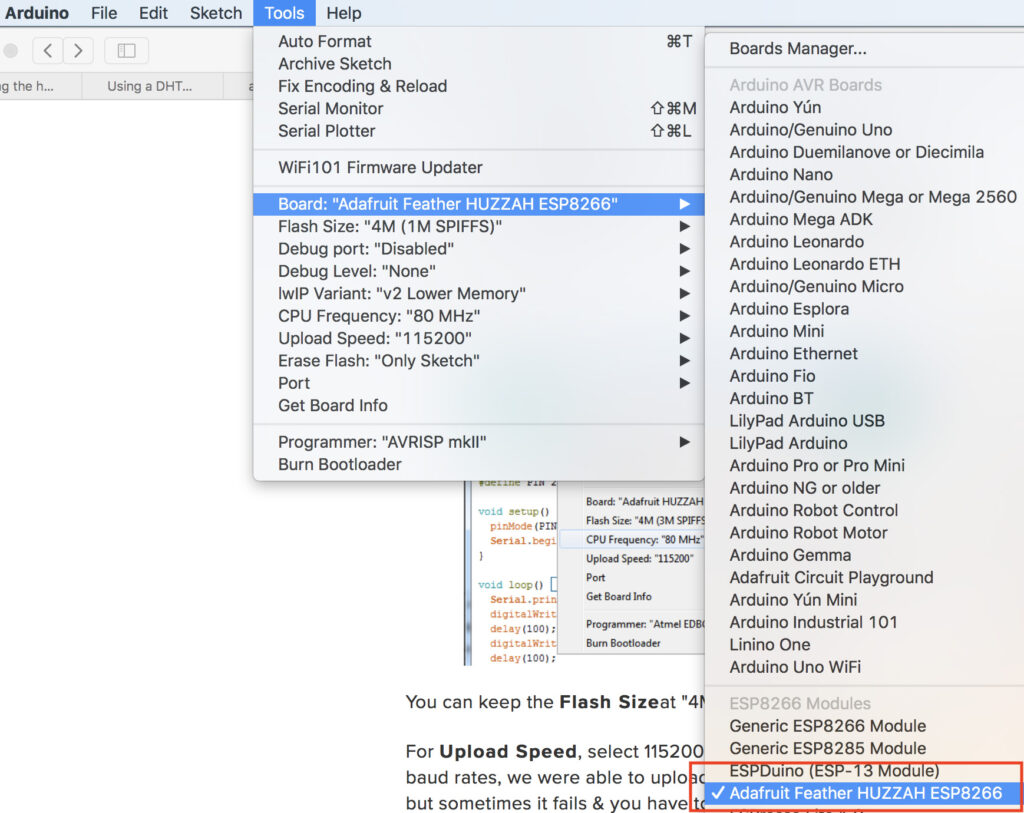
In the Arduino IDE, create a new sketch. Replace the default code with the following:
const int blink = 0; // red LED should blink - set this to 2 to blink the blue LED
// the setup function runs once when you press reset or power the board
void setup() {
// initialize digital pin LED_BUILTIN as an output.
pinMode(blink, OUTPUT);
}
// the loop function runs over and over again forever
void loop() {
digitalWrite(blink, HIGH); // turn the LED on (HIGH is the voltage level)
delay(1000); // wait for one second (1000 milliseconds)
digitalWrite(blink, LOW); // turn the LED off by making the voltage LOW
delay(1000); // wait for one second (1000 milliseconds)
}
Save the sketch as blink.ino.
Connect your Feather HUZZAH to your computer via USB and set the correct port.
Tools –> Port
For Mac:
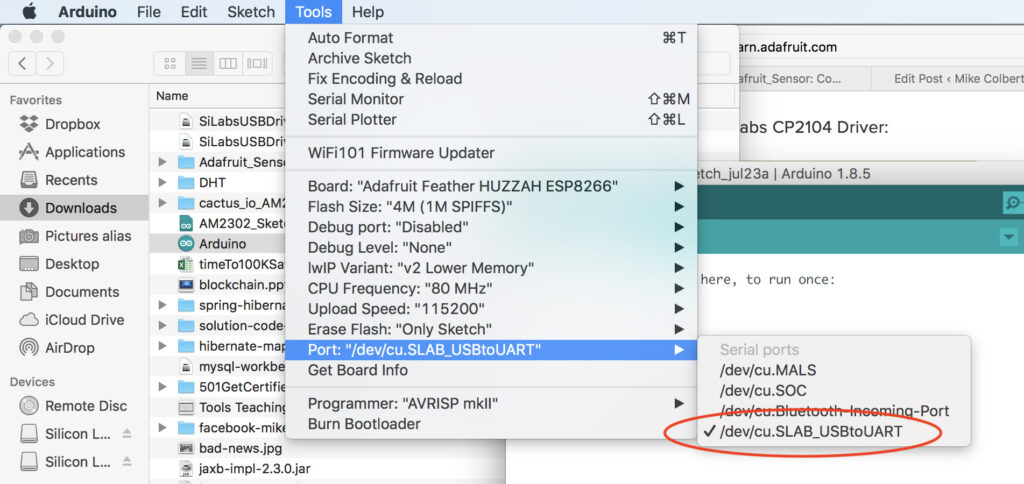
For Windows:
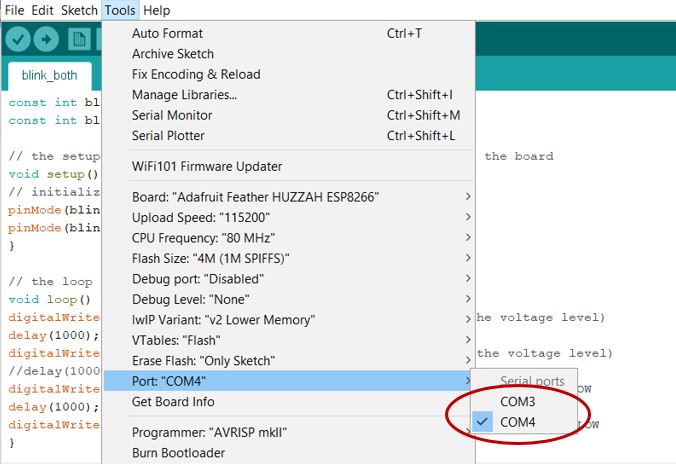
From the sketch window in the IDE, click “Upload”
The file should upload and the red LED will blink. You can modify the constant to be “2”, save and re-upload. The blue LED should now be blinking.